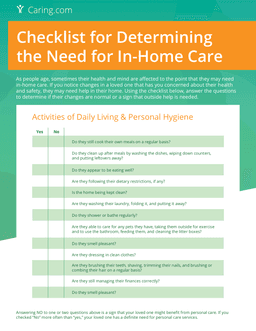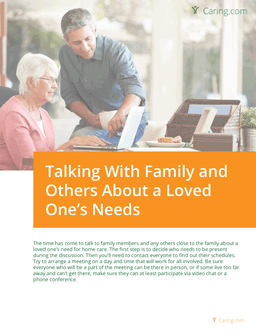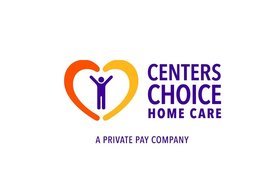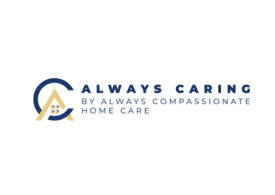The 10 Best Home Care Agencies for Seniors in Flushing, NY for 2025
Caring.com offers a free service to help families find senior care and authentic reviews to help you in your decision. On average in Flushing, NY, residents and their loved ones rate In Home Care agencies across the 68 options below.
Home Care Services in Flushing, New York
68 Results
Filters
68 Results
What you can do with Caring
On this page:
Paying for Home Care in Flushing, NY
The Cost of Home Care in Flushing, NY
The 2024 Genworth Cost of Care Survey shows that home care agencies in Flushing charge about $5,148 monthly. This aligns with the New York norm and runs hundreds of dollars below the national median of $5,720. Local fees compare favorably to rates in Albany and Binghamton, which come in at about $6,292 and $6,673, respectively. In Poughkeepsie, however, monthly fees trend lower at approximately $4,004.
Flushing
$5,148
New York
$5,148
United States
$5,720
Poughkeepsie
$4,004
Binghamton
$6,673
Albany
$6,292
Utica
$4,195
The Cost of Home Care vs. Other Senior Care Options in Flushing, NY
Home care agencies in Flushing charge around $5,148 per month for nonmedical support. Although adult day health care fees trend lower at approximately $2,275, private and institutional skilled nursing services have higher costs. For example, home health care agencies charge $6,483 for specialized care, and nursing homes charge around $12,471.
Home Care
$5,148
Home Health Care
$6,483
Adult Day Health Care
$2,275
Assisted Living Facility
$6,508
Nursing Home Facility (semi-private room)
$12,471
Note: Data for Flushing was unavailable, so data for the nearest city, New York City, was used instead.
Financial Assistance for Home Care in Flushing, NY
Given the high cost of in-home care, many people use one or more forms of financial assistance to cover the expenses. Below, we explain some of the most common sources of financial help for paying for in-home care. If none of these options are available to you, you can reach out to your Area Agency on Aging or Aging and Disability Resource Center to learn about local resources.
- Long-Term Care Insurance: Long-Term Care Insurance covers expenses related to senior care, including in-home care. Depending on the policy type, beneficiaries may receive a cash payment to use towards long-term care or reimbursement for qualifying long-term care expenses. Note that there are limitations- typically a maximum benefit of $150 per day- and exact coverage terms vary depending on the exact policy, so always check the details.
- Medicare: Medicare does not cover in-home care because it is classified as custodial, or non-medical, care. However, some Medicare Advantage and Medicare Supplement plans, which offer expanded benefits, may cover in-home custodial care.
- Medicaid: Medicaid coverage of in-home care varies between different states because it is not a federally mandated benefit. Currently, all states cover some in-home care either through their standard Medicaid or a waiver program. The specific coverage rules are set individually by each state.
- Veterans’ Benefits: The Aid and Attendance benefit is a monthly cash payment that beneficiaries can use to pay for senior care, including in-home care services. To qualify for A&A, Veterans must already receive the VA pension and meet several additional requirements, including needing assistance with the activities of daily living.Contact the Department of Veterans Affairs to learn more.
- Reverse Mortgages: Home Equity Conversion Mortgages (HECMs) are federally insured loans that are available to homeowners age 62 and over. Reverse mortgages allow you to access a portion of your home’s equity in cash, tax free. Many seniors use reverse mortgages to finance their care expenses, including in-home care. Note that although there are no monthly payments due on reverse mortgage loans, borrowers do have to repay the loan once the last surviving homeowner passes away, moves, or sells the home.
Free & Low-Cost Home Care Resources in Flushing, NY
Seniors who live in Flushing or other parts of Queens can turn to the following agencies for assistance. Government agencies and nonprofit community development corporations provide a variety of helpful services for older adults, including meals, transportation, friendly visitor programs and help with utility bills and other essential expenses.
| Resource | Contact | Service |
|---|---|---|
| New York City Department for the Aging | (212) 244-6469 | The NYC Department for the Aging can direct seniors to age-related services in their neighborhood. It supports more than 300 senior centers and provides information about healthy aging, fall prevention, job training, caregiver supports and friendly visitor programs that can combat isolation and keep residents engaged. |
| Margert Community Corp. | (718) 471-3724 | Margert Community Corp. administers several programs that can help seniors age in place. Access to Home funds home accessibility modifications for disabled adults and seniors. RESTORE helps seniors address code violations and critical home repairs. The Weatherization Assistance Program pays for energy-efficient home improvements that reduce seniors' heating and cooling bills. |
| Citymeals on Wheels | (212) 687-1234 | This Meals on Wheels program delivers nearly 600,000 meals to more than 5,000 homebound clients in Queens. To qualify for meals, seniors must contact their local Case Management Agency to schedule an assessment. Individuals who are 60 or older and face barriers when it comes to shopping or preparing food are eligible. |
| Home Energy Assistance Program | (212) 331-3126 | HEAP is a federal program available to low-income households who are struggling to pay their heating bills. The program can help with past-due utility bills, as well as furnace repairs, tuneups and replacements. Eligibility is based on the individual's income and the size of their household. Monthly income for a two-person household is capped at $3,569. |
Determining Your Loved One’s Need for In-Home Care
Aging can be a difficult process, and loved ones may not always ask for help – oftentimes it’s up to their family to evaluate their need for help around the house. While no two situations are exactly alike, this checklist can help you and your loved ones determine when it’s time to start the search for a home care provider.


Guidelines for Talking About In-Home Care
If you’ve determined that your loved one needs the assistance of a care provider in their home, it may be time for a difficult conversation. Handled correctly, however, this process can bring a family together and ensure that everyone’s concerns are addressed. Use this PDF as a starting point to help the conversation stay as positive and productive as possible.









